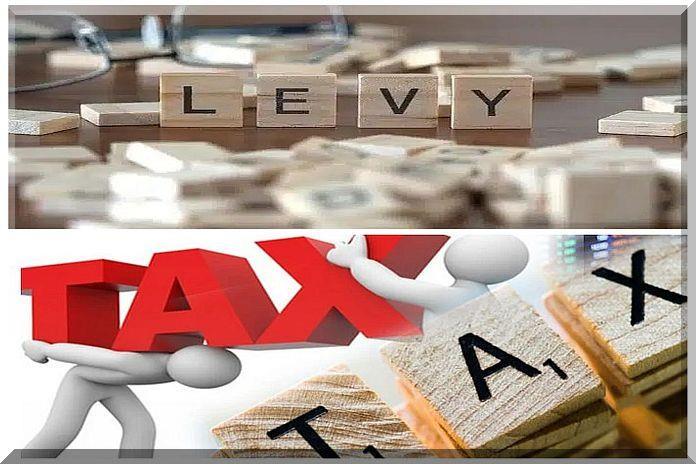
Health And Security Levy Not A Vat, Says St Lucia Government Officials
- Why 2.5 percent levy and not a 15 percent VAT? “Permanent Secretary in the Department of Finance, Francis Fontenelle, has stated that the government's 2.5 percent Health and Security Levy is not a VAT.” “Deputy Comptroller at the Customs and Excise Department, Ava Marius-Deterville said that the department collects over 50 percent of government revenue. It is responsible for the administration of the Health and Security Levy on goods coming into the country.” “Comptroller at the Inland Revenue Department (IRD) Marcia Vité highlighted the government's decision to delay the implementation of a 2.5 percent levy on services by two months.” “The [levy on] services would start on October 2, 2023 – so, in essence, there is a zero rate for the next two months, August and September, and it will start on services from October.” The 2.5 percent levy will be collected separately from the VAT.
CASTRIES, St Lucia, (CNG Business) – Subject to two primary department heads of the government of Saint Lucia by their interpretations in the article, ' health and security levy not a value-added tax (vat) ' transmits a compliant submission and portrayal of ill-advised policy and definition, of the new 2.5 percent levy and not a re-adjusted 15 percent VAT from (12.5%).
The none-the-wiser narratives expressed in the article, beyond seemingly toeing-the-line is contrary-to-applied accomplished; and the fact that this has caused so much public confusion says a lot about the levy itself.
The levy will be collected separately from the VAT
The Office of the Prime Minister, (OPM):“Once implemented, the health and security levy is expected to annually generate at least XCD 33 million for the government of Saint Lucia.” –“The health and security levy is a necessary measure to ensure that the burden of economic recovery is shared equitably among all stakeholders. [...]”
A levy by definition
A levy is an act of levying a tax, fee, or fine. A Levy is imposed or collected by legal authority. A Levy is used to describe the act of imposing or collecting the charge.
Clarity on government recent policy decision
“Permanent secretary in the department of finance, Francis Fontenelle, [has] stated that the government's 2.5 percent health and security levy is not a VAT and that government's tax policy forms part of prudent financial management in balancing the country's budget.”
He explained: “One of the core responsibilities of a government is fiscal sustainability-a government's ability to generate revenue to at least match its expenditures. Having debt for any sustained period of time – ballooning debt – can land governments in the hands of foreign debt collectors .” The optimum scenario, he said,“is for government revenue to match its operating and capital expenditure.”
Having already passed the threshold of the subject, the administration and the principal arms of government continue to fail in the collection of tax revenue.
This dovetails much larger, considering Philip J. Pierre's decision“to conditionally waive interest, fines and penalties on Value Added Tax (VAT) deductions owed to the government will collectively save Saint Lucia's business community more than XCD 150 million.”
- Watch:
In the article ' st lucia government botched policy ' CNG addressed the policy:
“The policy decision on VAT deductions owed to the government pivots yet again on systemic failures of public administration and enforcement. This continues a downward spiral of public accountability and endurance of laws. It keeps open the floodgates that make legislators prone to the corruptible and doing others' bidding.
“It robs the public of government services, economic development and reduces the country's viability as a serious jurisdiction for doing business – when it becomes acceptable to collect VAT on behalf of the state and not remit to the government. Meanwhile, the government cajoles businesses – rather than apply the law.”
Government revenue and tax policy
Permanent secretary in the department of finance, Fontenelle, continued:
“... If the government is noticing that over a period of time there is a fiscal deficit or an operating account deficit, it means revenue is not sufficient to take care of operating expenditure and that there is danger down the line. That is why the government has to come up with policies to correct this. From 2019 up until last year, we had sustained fiscal deficits. It's obvious because we had the COVID-19 situation and productivity decreased, revenue decreased, but certain expenditures remained.”
Notably, permanent secretary Fontenelle juxtaposes the government fiscal deficit and the rationale for tax policy. However –“ 2.5 percent health and security levy is not a VAT, ” pivoting in contrast to defined terms and pragmatism.
While there has been bleeding support to frame the 2.5 percent levy with a rematch to economic performance, spending and borrowing, primary explanations, application and collection procedures are inconclusive.
Adding to the selling points of the 2.5 percent levy the Customs and Exercise Department says it“continues to edify the inquiring public on the reason for the taxes and on the list of exempted items via the department's website .
Related Links :
- st lucia government botched policy st lucia legislates selective 12.5 percent vat reduction for two years
Deputy Comptroller at the Customs and Excise Department, Ava Marius-Deterville, said:
“The department collects over 50 percent of government revenue. It is responsible for the administration of the health and security levy on goods coming into the country .
“All the new taxes emanating from the budget cycle for this year we are responsible for implementing these new taxes on the applicable goods at the time of importation or when the taxes become payable. [...] So in essence, Customs is responsible for the collection and the protection of government revenue .”
“It is a new levy , so it will take some getting used to. But our officers are aware of the new levy and it is being applied as we speak at the borders.”
Inland Revenue Department (IRD) Comptroller, Marcia Vité reportedly highlighted the government's decision to delay the implementation of a 2.5 percent levy on services by two months.
“ The [levy on] services would start on October 2, 2023 – so, in essence, there is zero rate for the next two months, August and September, and it will start on services from October .”
The infatuation or lack thereof with interpreting the 2.5 percent levy vs realism, continued:
“It is a levy. It is definitely not a VAT. It is a levy that will be collected separately from what we know as the VAT . What happens is that the VAT is the final tax. So the VAT will be levied on your goods and services, and then on the levy . So the VAT , as it always has been, is the final tax .”
CNG Insights – re-adjusting VAT to 15 percent
Heads of government departments should know that a tax regime must be simple in structure, easy to collect, and should not be administratively burdensome. This is exactly why VAT was implemented in the first place – to collapse the nuisance taxes into one.
On current examination, this new 2.5 percent levy is going back to the old time while still trying to hold onto the VAT. The government of Saint Lucia would have been better off re-adjusting the VAT to 15 percent – simple.
Why the 2.5 percent levy and not a 15 percent VAT?
The stepback
The references and descriptions by government officials demonstrate a posture of misperception and uncertainty. Albeit –“ it is no big deal ” given the convenience of supposed 'experts' .
Moreover, are Saint Lucians not desirable to know if the 2.5 percent levy [undisclosed] forms part of the Saudi Fund for Development (SFD) development loan agreement worth US$75 million to fund the“ reconstruction and rehabilitation of st jude hospital project ” – likewise, [broad] aspects of national security inclusive of cost allocations ?
Thus, why a new 2.5 percent levy and not a re-adjusted 15 percent VAT from (12.5%)?
Indeed, the transparency and accountability mantra has failed to meet modern terms and in so doing, the convenient answer may very well be consistent with ignoring media questions under the strategy of inexactness – “... kill it, keele it, keel it ” ... for the time being ... You don't want to go there.”


Legal Disclaimer:
MENAFN provides the
information “as is” without warranty of any kind. We do not accept
any responsibility or liability for the accuracy, content, images,
videos, licenses, completeness, legality, or reliability of the information
contained in this article. If you have any complaints or copyright
issues related to this article, kindly contact the provider above.



















Comments
No comment